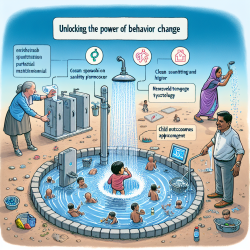As a Special Education Director, my focus is often on ensuring that our students receive the most effective, research-backed interventions available. This commitment extends into all areas of special education, including the rehabilitation services provided to students with traumatic brain injuries (TBI). One area of emerging importance in the rehabilitation of TBI patients, particularly those in comatose states, is the role of the speech pathologist in coma stimulation programs.
The concept of coma stimulation is predicated on the advances in emergency care and neurosurgical management of the traumatically brain injured, which have significantly increased survival rates. With more individuals surviving severe TBIs, the field of rehabilitation has evolved to facilitate and structure improvement, aiming for functional outcomes that allow these individuals to reintegrate into their communities and, for our younger patients, into educational settings.
Research, such as that presented by Brenda Phoebus in Coma Stimulation: The Role of the Speech Pathologist, highlights the critical role that early intervention by rehabilitation specialists plays in expediting progress for TBI patients. This research underscores the necessity of including speech pathologists in the interdisciplinary team managing coma intervention programs.
Physiological Aspects of Coma and Rehabilitation
Understanding the physiological underpinnings of coma is essential for implementing effective stimulation programs. The reticular activating system of the brain stem, responsible for arousal and readiness to respond to the environment, is often injured in TBI, leading to coma. Rehabilitation is not a one-size-fits-all approach but is defined by levels, with specific strategies employed at each stage of recovery. The Ranchos Los Amigos Scale of Cognitive Levels is a valuable tool for determining appropriate interventions.
Sensory Stimulation in Coma Rehabilitation
Sensory stimulation programs are initiated early in the rehabilitation process, based on the principle that increased input into the reticular activating system might enhance arousal and responsiveness. These programs are structured to minimize distractions, apply stimuli one at a time, and observe for responses, which are crucial for tailoring the intervention to the patient's specific needs.
Family involvement is encouraged, with education and instruction provided to help them become effective facilitators of progress. This collaboration not only aids in the patient's recovery but also supports the family during a challenging time.
The Role of the Speech Pathologist
Speech pathologists play a pivotal role in the early stages of recovery, providing structured language and cognitive stimulation. Their involvement begins upon admission to the program, complementing the efforts of other disciplines and ensuring continuity of care. The use of sensory stimulation kits, developed in collaboration with occupational therapy and with input from the family, exemplifies the interdisciplinary approach needed for effective coma stimulation.
Oro-motor stimulation, desensitization, and the inhibition of primitive reflexes are addressed through collaborative efforts among speech pathology, occupational therapy, and nursing staff. These interventions are critical for developing oral skills necessary for feeding and are initiated based on the patient's readiness and absence of contraindications.
Conclusion
The integration of speech pathologists into coma stimulation programs represents a significant advancement in the rehabilitation of patients with traumatic brain injuries. As research in this area continues to evolve, it is imperative that practitioners remain informed about the latest findings and incorporate evidence-based practices into their interventions. The work of Brenda Phoebus and others in this field provides a solid foundation for improving outcomes for TBI patients and underscores the importance of early, specialized intervention.
For those interested in exploring this topic further and improving their practice, I highly recommend reading the original research paper on this subject. To read the original research paper, please follow this link: Coma Stimulation: The Role of the Speech Pathologist.










